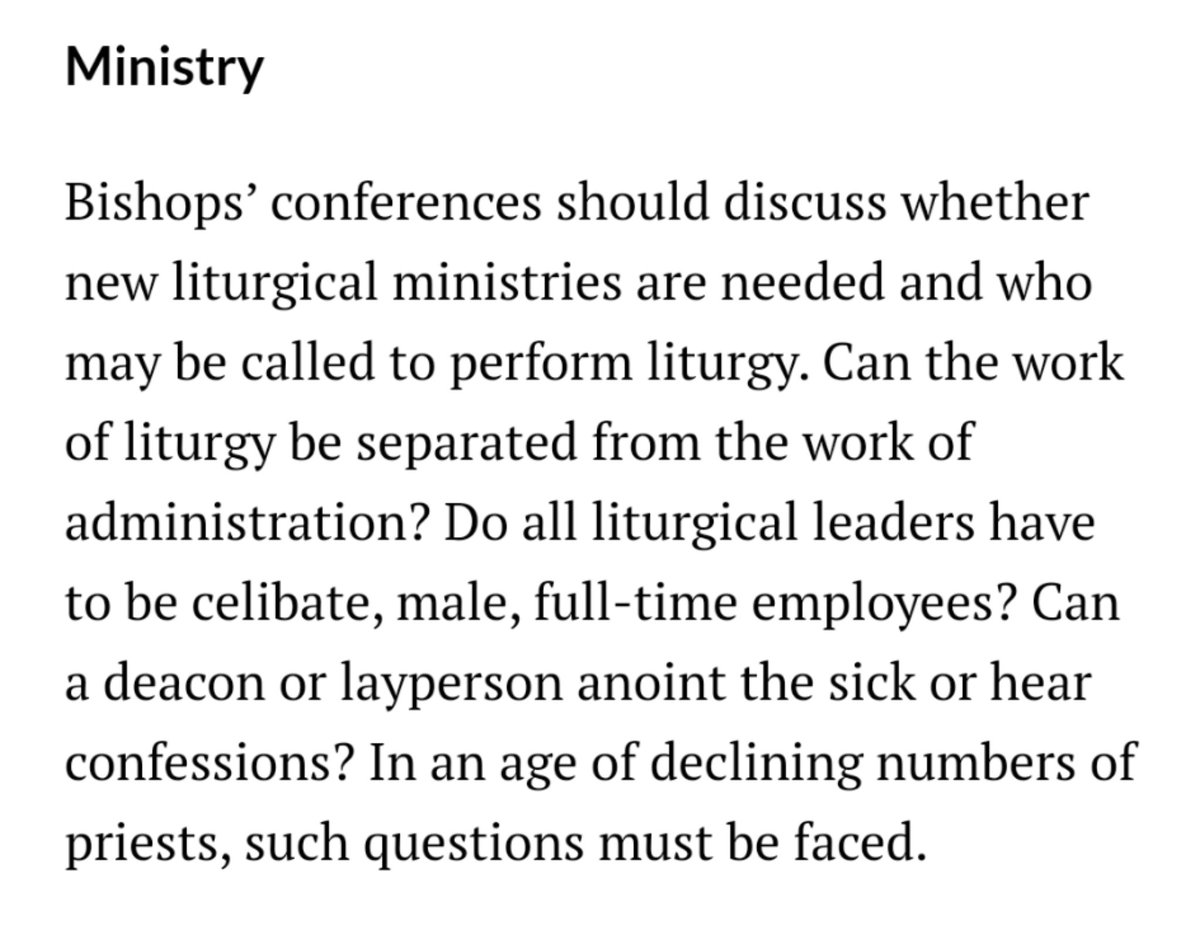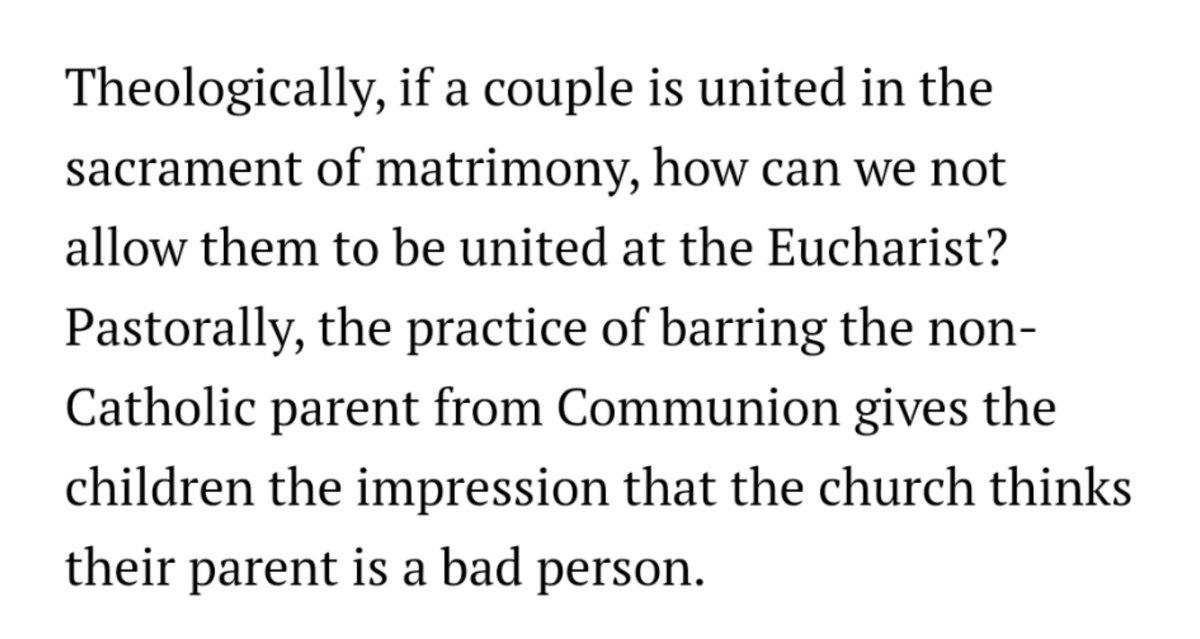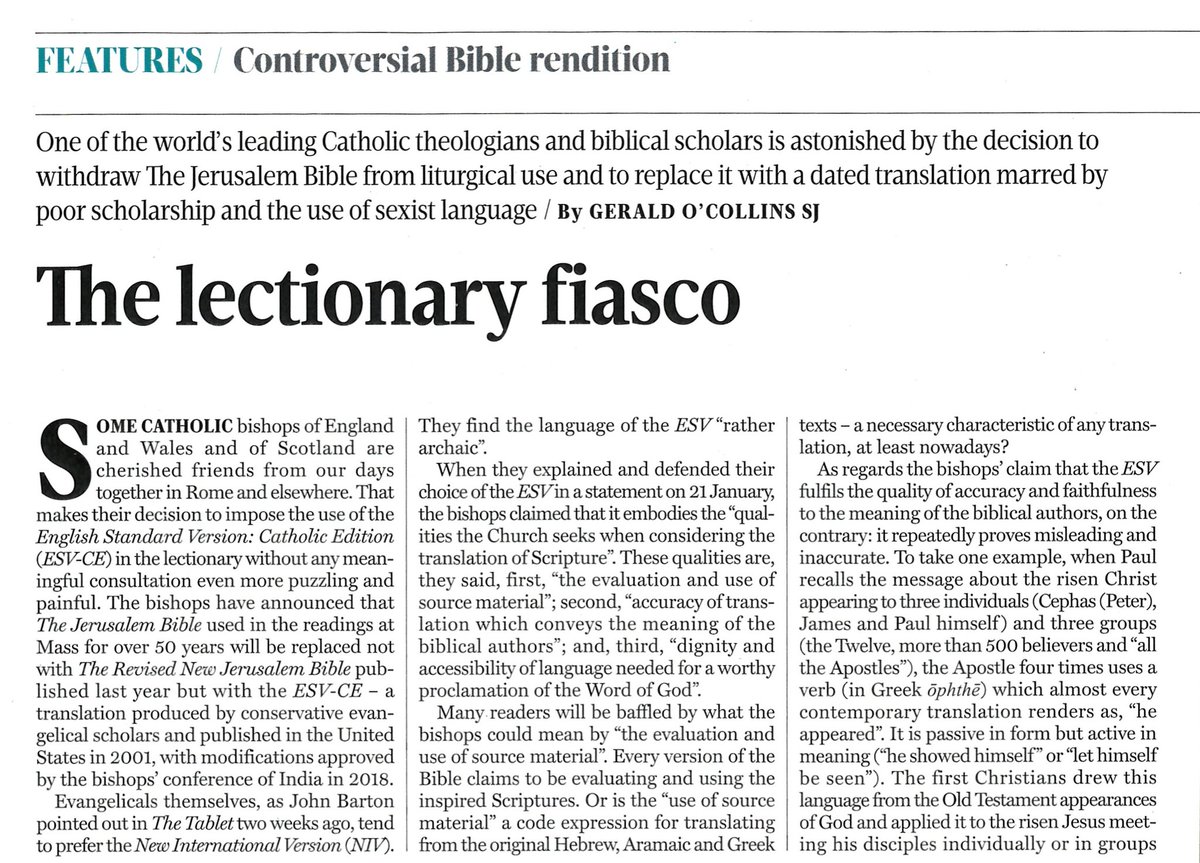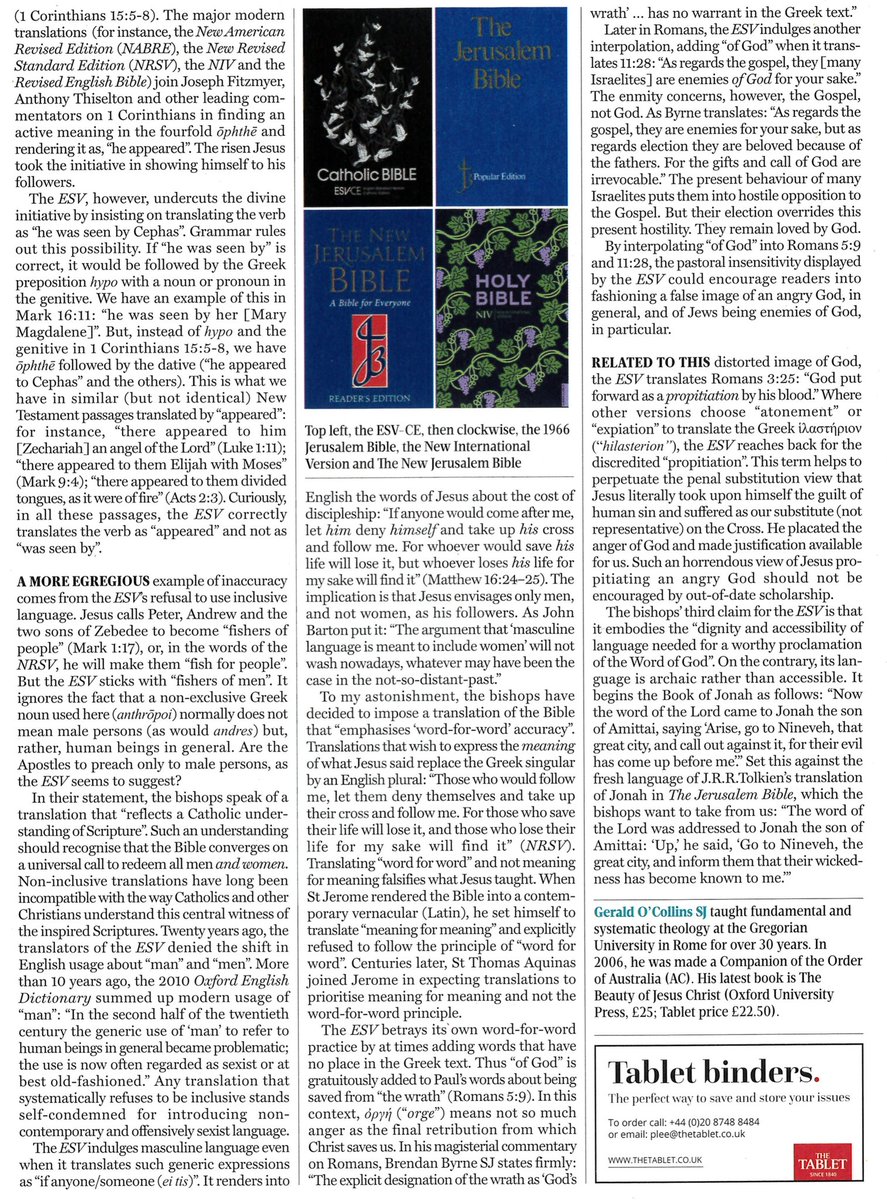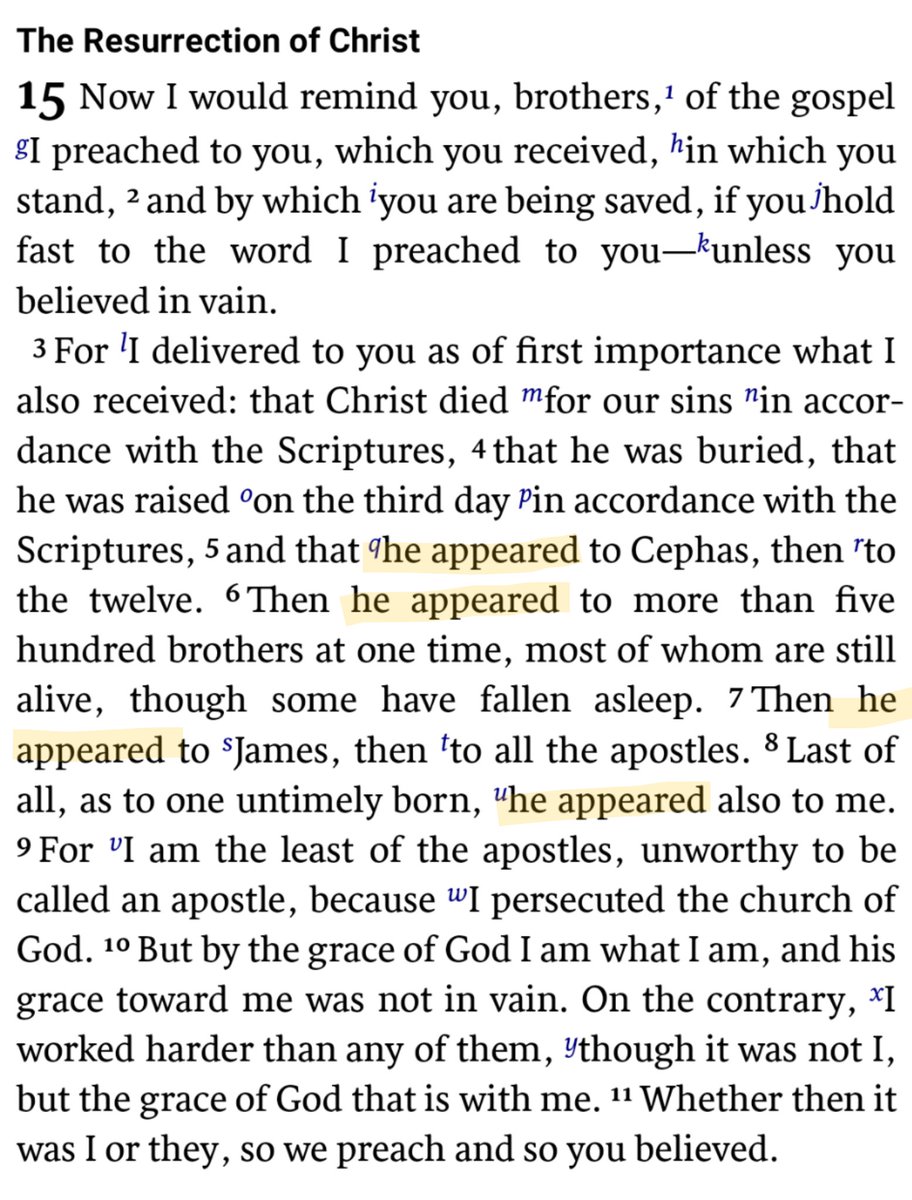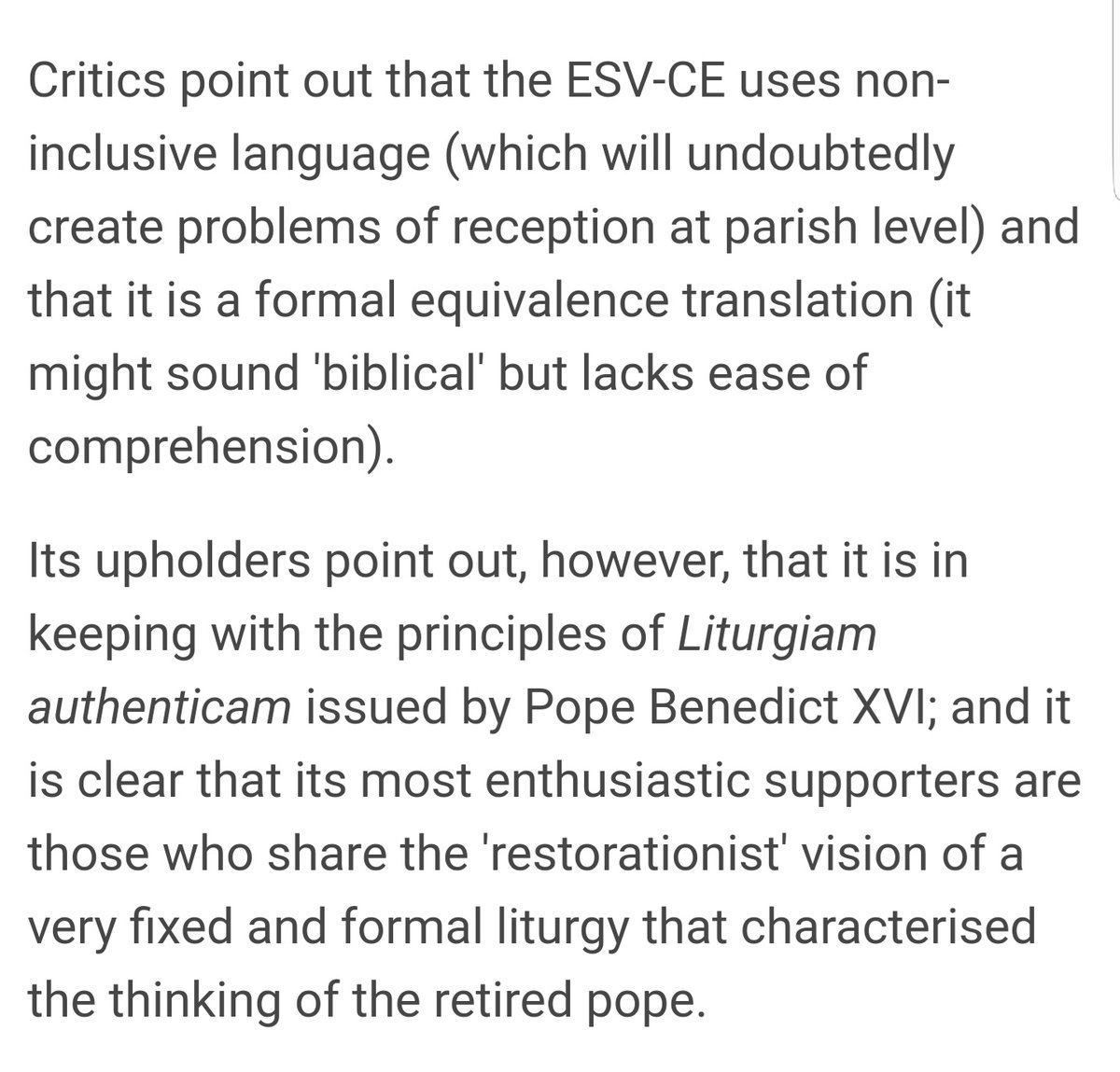
(1/13) It's indicative of the OF lectionary's complexity that the two Sisters make quite a few factual errors in their podcast: globalsistersreport.org/news/arts-and-…
It is earnest, & I fully endorse the encouragement for Catholics to read the Bible. But sadly there's a *lot* of inaccuracies...
It is earnest, & I fully endorse the encouragement for Catholics to read the Bible. But sadly there's a *lot* of inaccuracies...
(2/13) The basic account of the development of the OF lectionary (1:30) is not really very accurate.
Mark doesn't begin the 3-year Gospel cycle (2:00) - Year A is Matthew, B is Mark, C is Luke. (I think Sr is getting confused with the weekday cycle, which does begin with Mark.)
Mark doesn't begin the 3-year Gospel cycle (2:00) - Year A is Matthew, B is Mark, C is Luke. (I think Sr is getting confused with the weekday cycle, which does begin with Mark.)
(3/13) The assumption that Mark is the earliest Gospel and John the latest (2:00-2:15) is debatable, although it is the case that Coetus XI shared these assumptions.
The use of John in the OF lectionary is not primarily during "Advent & Lent" (2:25) - Sister means Lent & Easter.
The use of John in the OF lectionary is not primarily during "Advent & Lent" (2:25) - Sister means Lent & Easter.
(4/13) The 1st reading on weekdays is not "usually from the NT" (2:40) - it alternates between OT and NT books. In fact, the OT is read in roughly 20 out of the 34 per annum weeks in Year I of the weekday cycle, and 18 out of 34 weeks in Year II.
(5/13) One of the biggest errors comes at 3:38, where Sister asserts that there are two "tracks" for the OT reading on Sundays: "sequential" and "thematic".
This is not true!
She has confused the Revised Common Lectionary with the Catholic Ordo lectionum Missae.
This is not true!
She has confused the Revised Common Lectionary with the Catholic Ordo lectionum Missae.
(6/13) The RCL, an adaptation/development of OLM that is utilised in a number of Protestant denominations, does have two tracks for the Sunday OT reading after Pentecost: see lectionary.library.vanderbilt.edu/lections.php?y… for this year. But this is *not* a feature of the Catholic order of readings.
(7/13) The "Common of Apostles" (5:00) is not a thing in the OF lectionary; the Apostles, in fact, are all assigned proper, obligatory readings.
(8/13) And then, at around 6:15, the old myth that somehow refuses to die: that almost all the Bible is read in the 3 year Sunday cycle ("almost its entirety in the course of 3 years").
THIS IS WRONG.
Can people just stop making this claim? Please?
THIS IS WRONG.
Can people just stop making this claim? Please?
(9/13) The stats are given by Rev Fr Felix Just at catholic-resources.org/Lectionary/Sta….
Even in the weekday cycle, only 13.5% (!) of the OT is read (excl the psalms).
Although I would quibble with Fr Just's EF stats, as they're not quite like for like, the ones for the OF are accurate.
Even in the weekday cycle, only 13.5% (!) of the OT is read (excl the psalms).
Although I would quibble with Fr Just's EF stats, as they're not quite like for like, the ones for the OF are accurate.
(10/13) In the 3 year Sunday cycle, only 3.7% of the OT (excl Psalms) and 40.8% of the NT is read. This is a far cry from "almost the entirety of the Bible in 3 years".
For those who continue to make this claim:
For those who continue to make this claim:
(11/13) The Sisters also manage to shoe-horn in comments about the perceived lack of women in the lectionary (7:18 onwards) as well as "inclusive" language translations somehow being a fruit of Vatican II (9:40 onwards)...?!
(12/13) Finally, the enthronement of the Gospel at Vatican II was not "a new gesture that hadn't been done before", as is mistakenly asserted (8:25) - it goes back to at least the Council of Ephesus in 431.
(13/13) It is good that the Sisters are enthusiastic about Catholics reading their Bibles. That's great!
But while giving people this much-needed encouragement, please can we be as accurate as possible in what we say and claim about the Bible and the lectionary?
But while giving people this much-needed encouragement, please can we be as accurate as possible in what we say and claim about the Bible and the lectionary?
• • •
Missing some Tweet in this thread? You can try to
force a refresh


